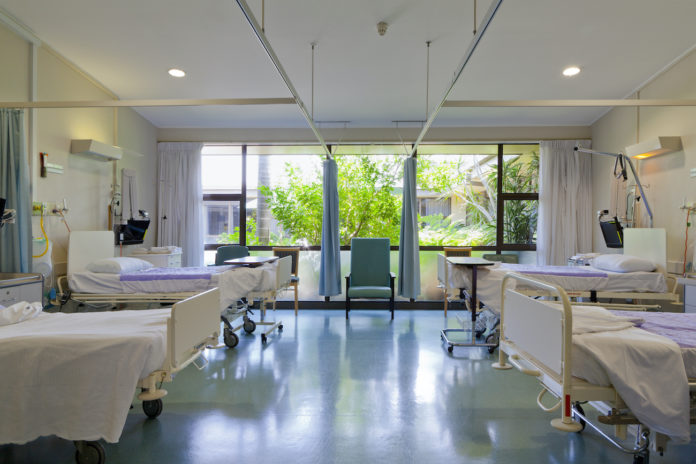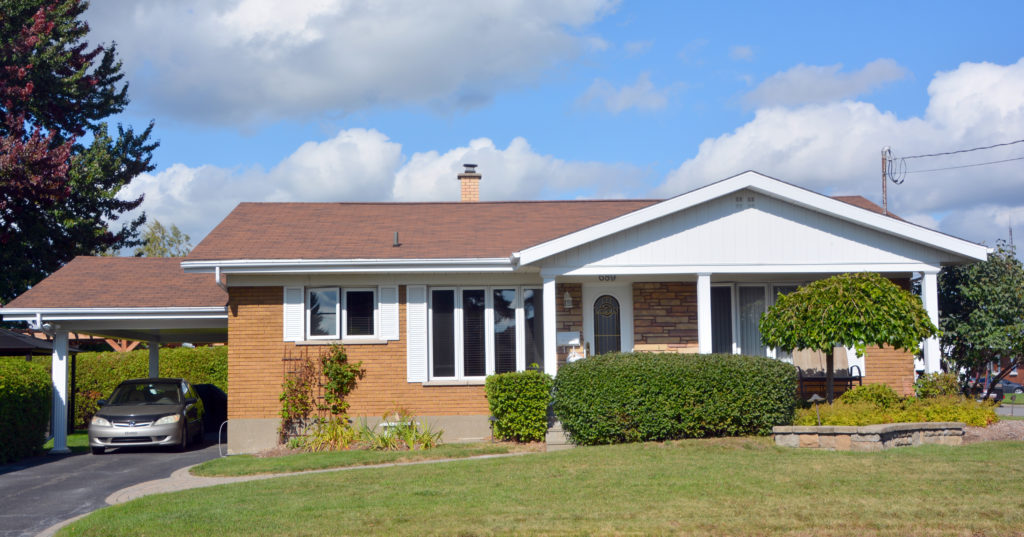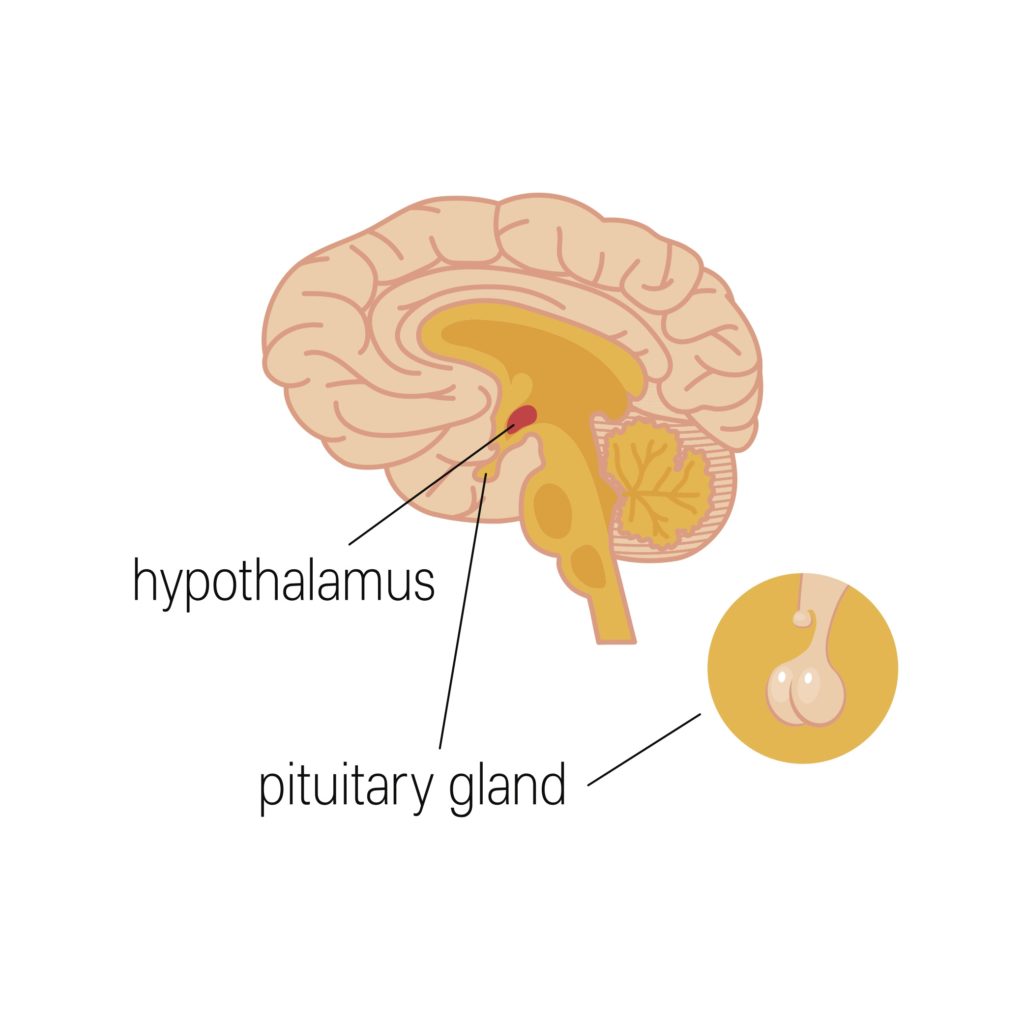
Spending time in hospital can be a lonely experience, unless you are fortunate enough to be placed in a shared public ward – really? – let me explain.
See there was a time, many months post my brain surgery; the medication I was supposed to be taking for the rest of my life – began to have serious adverse effects on me. The endocrinologist I was seeing at the time admitted me to hospital whilst she played around with my dosage regime in an attempt to mirror what the medical text books told her should be happening.
So here I was, a new arrival in an open ward shared with three other patients in a private hospital.
Hospitals are a place where families converge to show respect to those who are dying or seriously ill. The patients are generally parents or grandparents and each have a life story filled with achievements, milestones and precious memories.
Each visitor reveals a little more about your ward compatriot
Every time somebody visits, given the lack of privacy, all conversations are public; and overtime build a picture of a persons life before they became incapacitated and a shell of their former selves. You can’t help but listen to the doctors and specialist discussions with family members as each visitor reveals a little more about your ward compatriot.
Diagonally from me was a frail old man, he looked kinda like the Mr Burns character from the Simpsons. When I become aware he was starring at me and whispering something, I concentrated harder and could just make out he was saying “help me”. I thought ‘Jesus’ this doesn’t look right, then he become louder “help me, help me, they’re trying to poison me”. I noticed the pale skin on his arms was stained purple with bruises from a drip line inserted into his arm.
With out hesitation I pressed the nurse call button only to be greeted dismissively from the nurse who appeared to be very familiar with the behaviour. “Mr Erlich, don’t pull these out dear your daughter will be here soon”.
I felt foolish.
Directly opposite me was a guy named David who looked just a couple of years older than myself, but he remained motionless and unresponsive albeit the occasional gurgling sound. His wife arrived and held his hand whilst she spoke to him “Gramme from Blairgowrie says hello, oh the Johnston’s are coming over on Sunday” It seemed in recent times he had a fulfilling life complete with a holiday house and many social interactions. He looked like he was straining to respond but was unable speak or raise an eyebrow.
he’s never been the same since… i should never have agreed
She turned to look at me, I smiled; she then said “he’s got Parkinson’s we had a terrific Christmas he wasn’t like this at all – but one of the doctors recommended he have a colonoscopy and he’s never been the same since… I should never have agreed.” Just then their daughter and her partner arrived, and it became apparent this loving family was struggling to deal with the challenging circumstances.
Adjacent to me was a gentleman who seemed in his seventies, grandfatherly, with a large gash on the side of his head – no doubt from a recent fall, I figured. He got out of bed and approached me “what are you in for son” “complications from a brain tumor” I responded. He looked deeply concerned and caringly grabbed my foot “brain tumor, oh that’s no good – my wife’s not very well and I’ve got to get out of here to see her”. He then walked over to the nurses station and I could hear him say “who’s in charge here, I need to go and see my wife Vera she’s a very sick lady”. The response was firm “John the doctors are saying you need to be here till Thursday so that’s four more days”.
I felt deeply sorry for old John he cared very much for his wife and just wanted to see her.
Each morning at around 6:00 a.m. I would be visited by the endocrinologist – she was around my age, a bit unconventional and incredibly forthright, and not used to being questioned about her expertise. The truth being I was gradually loosing confidence in her and no longer buying into her schtick. Up until this point I had been very trusting and naive with the advice I’d been given, and assumed the medical fraternity would always provide correct information based on the latest research – unfortunately the reality was eventually proven to be different.
She had the results of the latest blood test and I was keen to get a handle on how much my body was able to produce the steroid cortisol on its own. “Well how much we got?” I impatiently queried, “not enough for someone like you” she vaguely responded. “How much is that?” I asked, “225” was the answer. See your cortisol production goes on a rhythm; the peak is approximately 8:00 a.m. and the lowest point around midnight. Blood test are generally taken first thing in the morning to measure your highest reading, the statistical range is between 148 and 750. I’ll take an informed guess that my previous normal prior to the tumor crushing the pituitary gland was mid 500’s. I was to learn down the track 225 was an ok result, and just within normal range and could have been something to build on.
What I didn’t know at the time was the impact of the endocrinologists insistence on tripling my hydrocortisone dose, would eventually cause further adrenal gland atrophy, until over time my morning blood test reading only measured 50
It took 18 months of perseverance, disappointments and near death experiences to regain the levels back to where I started post brain surgery.
Every morning like clock work Mr Erlich’s adult daughter would arrive and dutifully set up camp next to his bed. She was a flurry of energy, wore a faux Leopold skin coat, talked loudly whilst running her own families affairs, and ‘got things done’ during the day – she was the quintessential Jewish matriarch. I was impressed at her industrious management of their complex families needs, whilst taking absolute control of her fathers hospital stay.
She said to me “they give to you, you gotta give back – you know how it goes”. Her father was 98 years old, lived independently on his own and only recently retired. He had a housekeeper two hours a day and the daughter would visit him every afternoon. Fiercely independent, successfully self employed for generations, and adverse to hospitals and medications.
I admired this family unit greatly.
But it was when visitors were obliged to leave for the day – the real shenanigans started.
i’ve been held against my will, they’re trying to poison me
The ward was quiet except for the distant chatter of nurses, when I overheard a telephone call frail Mr Erlich was making – I could hear the other person on the line ‘clear as day’. He had rung the police and was saying “I’ve been held against my will, they’re trying to poison me”, for a moment they were taking it seriously until realising the circumstances, “can we talk with one of the nurses please” was the response.
Later that evening after falling asleep, I felt a lurking presence and awoke to find old John sitting next to my bed rifling through my phone; I grabbed it from him as he apologetically said “I’m sorry is this yours?”. See the medication he was taking was making him do weird things. Nonetheless we chatted for hours as he told me about his recent fall, concussion and how he gained the large laceration on his head. He delved into detail about the house he and his wife lived and raised a family in – the location, renovations and the annoying step that led to his tripping over. I enjoyed his company and the time spent with him immensely, as he distracted me from my own medical predicament.

A few hours later in the middle of the night old John started to have a conversation with an imaginary person, it seemed they were scheming to break in to the hospital so he could escape and go see his wife…”We’ll get Ronnie from the back street and the two of you will distract them and then I’ll make a break for it – see Vera’s not a well lady”.
Moments later he sprung out of bed, marched over to the nurses station with his hand shaped like a gun, then in a commanding authoritative voice said “right – you’re all under arrest”. Initially there was a surprised reaction until old John continued with “I’ve got to get out of here and see Vera, can someone call me a taxi – she’s a very sick lady” The answer was a firm “Thursday John, Thursday – now go back to bed dearest”. The incident become the talking point for days amongst the entire hospital wing.
My desire to finally get some sleep was thwarted by David opposite me, despite not moving or talking for days, his bowels would function with regularity. It would take a team of four people to change his continence protection, leaving a lingering stench that wafted through-out the ward. At least his gastro-intestinal system was working well.
I should have twigged something was awry with the endocronologist and there were warning signs, for instance she referred to me as one of her ‘panpit’s’ being short for panhypopituitarism (no pituitary function), which was the condition I was left with after surgery to remove a tumor from the base of my brain. She couldn’t understand why I was feeling so wretched and wasn’t entertaining the notion I could have been over medicated. Alarm bells rang when I asked about a critical test result that measures ACTH, the hormone the pituitary secretes to stimulate the adrenal glands into producing life giving cortisol – her response “can’t tell you, they’ve lost the results”. Looking back in hindsight, I believe she purposefully withheld the data because it was likely to have shown an encouraging number, contradicting her diagnosis to substantially increase my steroid dosage. Incredibly her sense of righteousness and perceived authority was more important than my long term wellbeing.
In some respects I’m thankful because this hospital stay became a turning point whereby I would vow to learn as much as possible about the pituitary and endocrine system’s and take control of my outcomes. I delved in deep unearthing obscure but useful research studies conducted in Soviet Russia to life long patient outcomes in Scandinavia – I ended ended up knowing more about the subject than any specialist I’ve since met, I even had to educate my GP on how the HPA axis works (i.e. the interaction between the hypothalamus, pituitary gland and adrenals).

I was fortunate because the tumor left a slither of viable pituitary tissue which had the potential to partially or fully restore function, dependant on surrounding structures remaining undamaged. It was enough hope to embark on a determined quest to be steroid free, because taking no action meant I remained a cardiovascular time bomb with a limited life expectancy. See the steroids were leaching calcium out of my bones and depositing it through-out the tissues, magnesium markers dropped dangerously and despite spending time in the sun; my vitamin D levels plummeted. I suffered from induced high blood pressure and was in a constant state of hyperinsulinemia which meant I was gaining weight uncontrollably. Moreover corticosteroids leave you immunocompromised and defenceless against the ravages of influenza or worse.
Coming off the steroids was against conventional medical advice for my condition and for good reason – you can die. Over a period of two years somehow I managed to achieve the goal and survive… but only just.
Thursday came around and old John was excited to be leaving when his son arrived to pick him up. There was some final paperwork for him to resolve at the nurses station which gave me a chance to talk with his son. “Boy he sure is keen to go see Vera, she’s sick right?” he paused, pursed his lips and slightly shook his head – enough said. “And the house where he tripped over?” – turned out he had been living in aged care after his wife passed away years ago.
A day or so latter it was my turn to leave the ward, as I was gathering my things frail Mr Erlich’s matriarchal daughter came over to me and wished me well and hoped I would get better soon – I felt comforted by her kind heartedness. Just then David lying opposite’s wife arrived and took her usual position seated next to her ailing husband, when he inexplicably said “hello” this was remarkable as he hadn’t uttered a word all week. It was such a positive note to be leaving the ward on. We shared our goodbyes and you could see the renewed optimism in her eyes.
I would like to believe he eventually got back on his feet and had some semblance of a life.
I often think about old John, and hope that when his time comes; he will be reunited with the love of his life Vera.
And who wouldn’t want to live to the ripe old age of 98.
Behind the hospital gowns and the failing bodies are real people who’ve been in their prime, previously created a life supported by family; and will one day be remembered by fond memories of who they once were.
.




